Karina is a self-professed dork and athlete whose Chilean, Puerto Rican, Queens, and Catholic roots inform her secular and spiritual views on life, work, and building a family. Today, Karina is Jewish and loves disconnecting on Shabbat and Judaism’s spirit of curiosity and debate, but she’s no fan of Ashkenazi cuisine (matzah brownies: why?!).
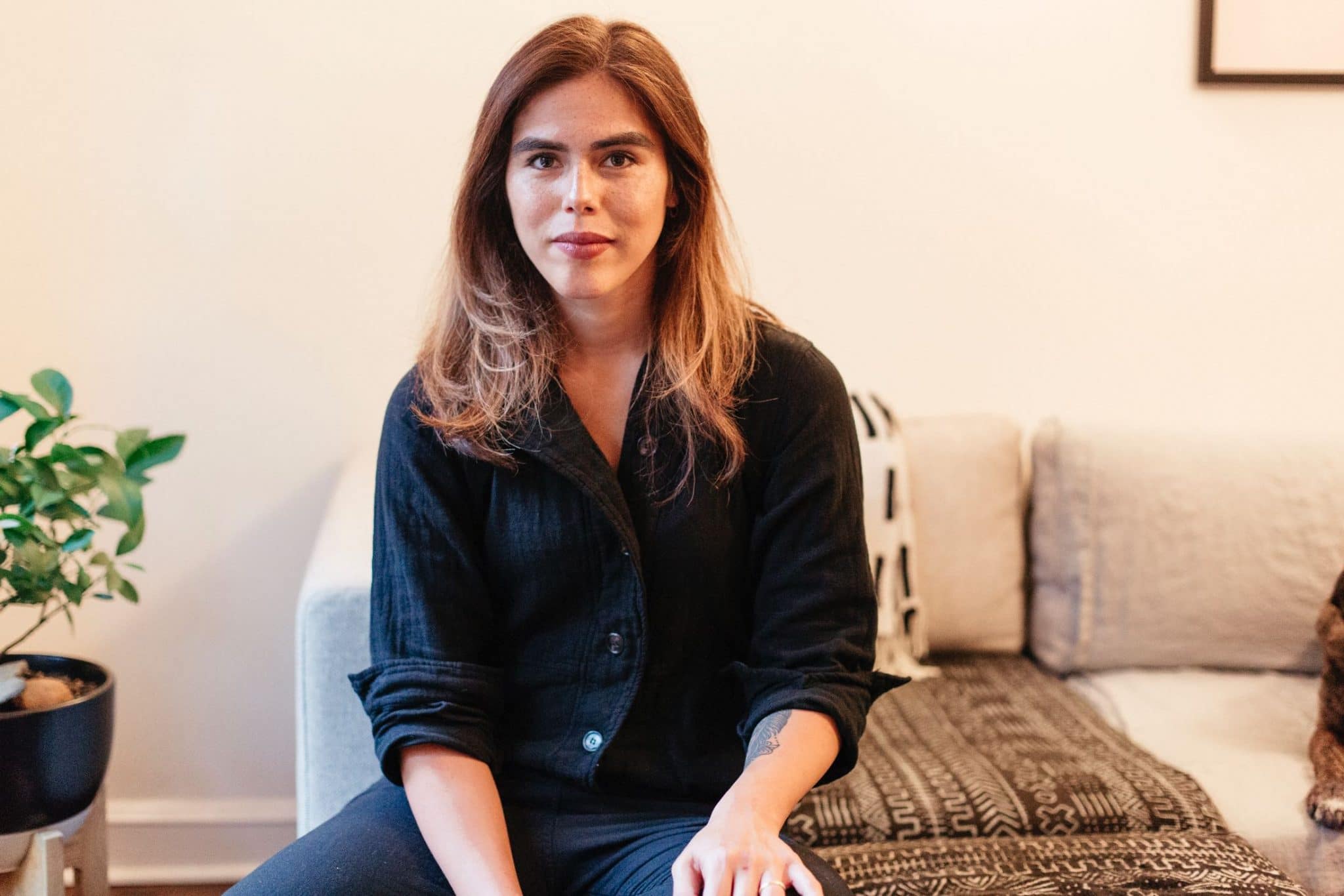
What’s the story behind your name?
My father is from Chile, and he had the worst childhood ever. As I was putting my son to bed last night, I was thinking, “Man, you have such a different life than my father.” My father moved here when he was in his mid-20s during the time of Pinochet’s Chile. He was just trying to get the hell out of there.
He decided to name me after the saddest novel, Anna Karenina. He was a five-year-old on the streets by himself. Awful, awful, awful. It wasn’t until he was a little older, like 10 or 11, that he was actually taken in by a woman in the neighborhood. He was a really bright kid, so he taught himself how to read, and his escape came from reading. He knew, when he had a daughter, he wanted to name her Karina.
What is your earliest memory?
I had an unconventional house of women who raised me. It was my mom, my sister, who’s 13 years older than I am, and my mother befriended our landlady, a German white woman who grew up on the Upper West Side of Manhattan. Her name was Vicky, and, when people would ask who she was, I would say, “My adopted grandmother.”
Vicky never had any kids. She outlived her entire family, so we were like her family. My earliest memories are with Vicky. She would make me coffee milk, which is milk with a little splash of coffee, and we would sit down and do all of the Daily News and New York Times crossword puzzles, then she would give me the kid’s puzzle, the word scramble.
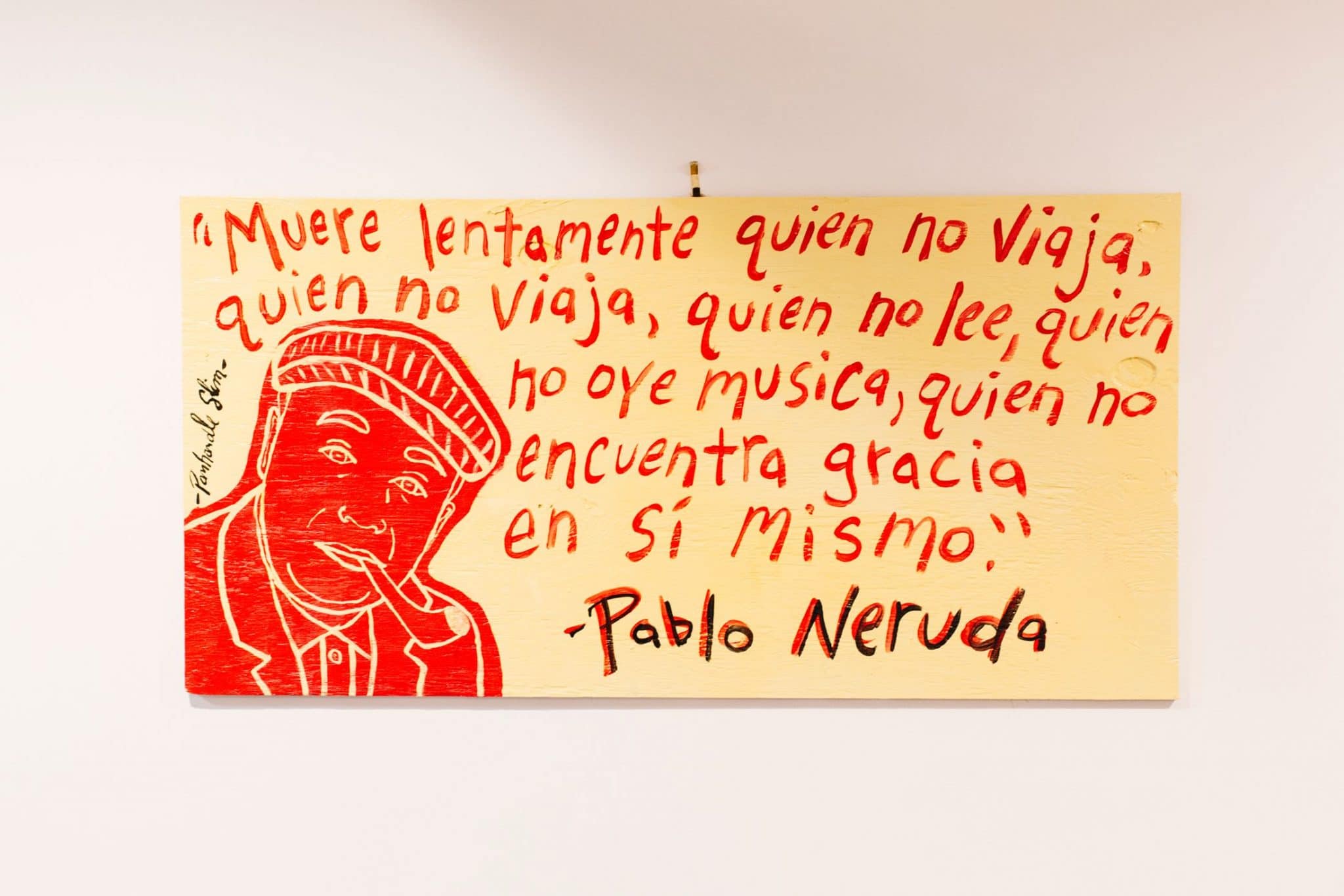
What advice would you give to your teenage self?
My high school was so awful for me. I went to a high school in Hell’s Kitchen that was probably the inspiration for the school that Michelle Pfeiffer teaches at in Dangerous Minds. We had to go through post-911 airport security to get into the school.
I was such a dork. I was an athlete, which was my saving grace. That’s why I didn’t get my ass kicked more, because all of my basketball friends had my back. The advice that I would give myself is, the permanency that you feel right now, that’s going to fade away. It’s not going to feel like this forever, just keep staying true to yourself.
What were the meaningful customs and traditions of your childhood?
I grew up super Catholic. Midnight Mass was a big thing. I don’t do that anymore, mainly because I’ve converted, and I like being Jewish. There were a lot of hang-ups that I had with being Catholic. Some customs I still honor and incorporate into my everyday, though, despite being Jewish.
One of the things that I still do is say a little prayer or blessing after I leave the house. I don’t know if it’s a Catholic thing. I give a kiss to the mezuzah after we leave, too.
If I feel like there’s bad energy around the house or the family, we light candles or incense.
Puerto Ricans practice a lot of spirituality. I grew up cleaning the house thoroughly before New Year’s, making sure you don’t have any laundry to do before New Year’s, so that you can welcome the house in a clean way. I do that now before Rosh Hashanah.
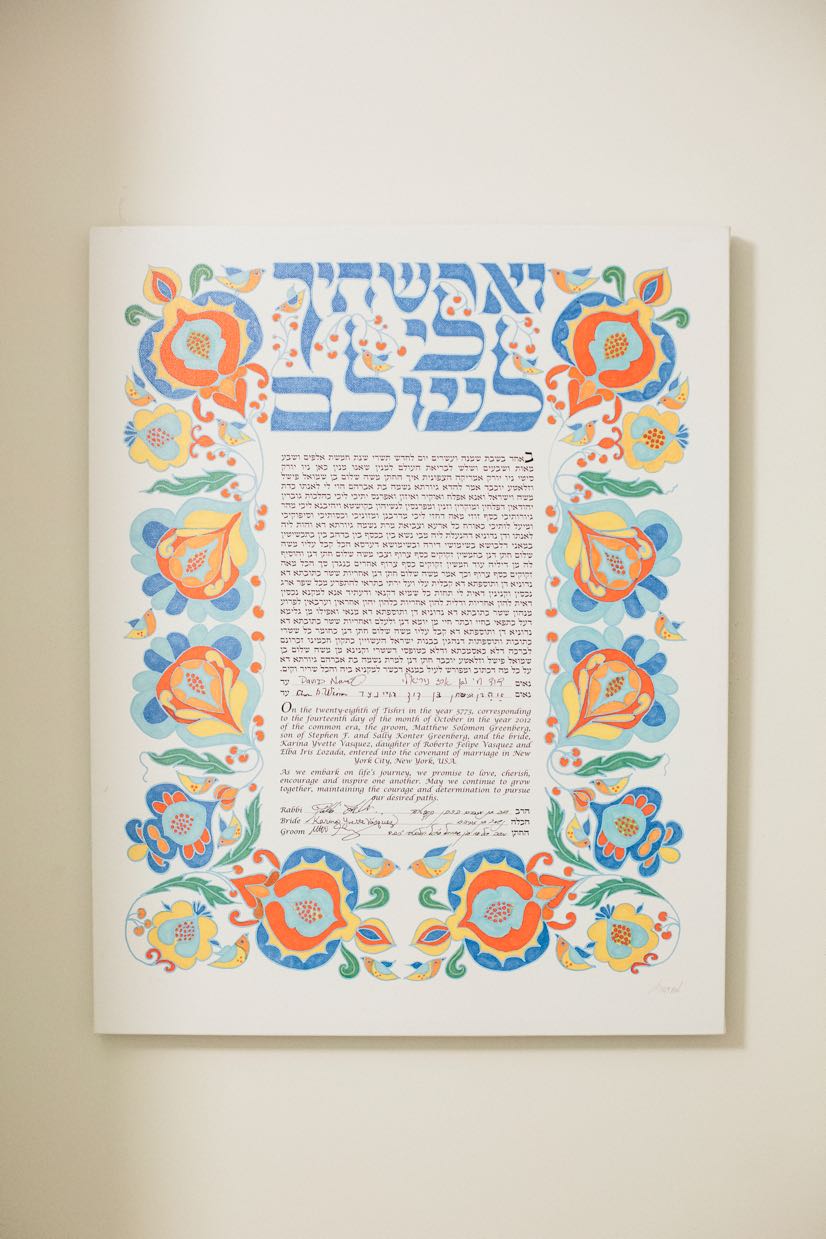
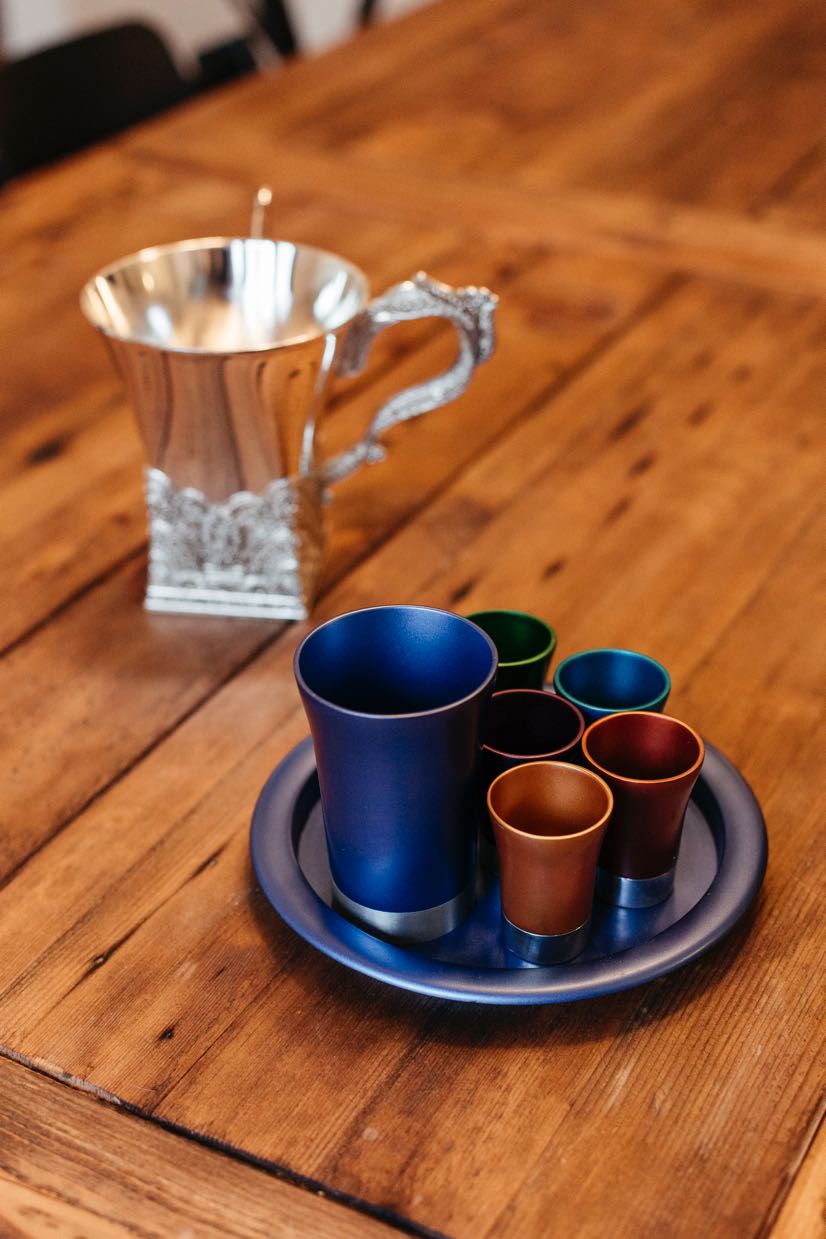
What prompted your conversion to Judaism?
My relationship with my husband was definitely what prompted my interest in Judaism, but it wasn’t what prompted the conversion. The conversion was prompted by a rabbi whom I encountered a year or two into us dating.
I thought, “This is such a big part of your life. We should go to a synagogue to learn more.” We picked the Village Temple. It’s a really progressive temple, and I fell in love with the rabbi. Her name is Rabbi Koster. When we went to services, it happened to be on a day where a kid was getting bar mitzvah’ed. It was just so welcoming and respectful of the kid.
Growing up Catholic, I got the idea of original sin drilled into my head.
There’s the concept of Jewish guilt, but I think that’s more cultural than religious. At this point in my life, I had stopped going to church. I met with the rabbi soon thereafter, and her process of conversion was unlike anything that I had heard of. I studied for three years. During that time, Matt and I had even broken up. I continued my studies because I was dedicated to my Jewish education. At no point did Matt say, “If we want to have a serious future, you need to convert.” In fact, I don’t think it would have been an issue at all.
How does Judaism fit into your life now?
We certainly don’t keep kosher, but I love the concept of why, being inquisitive. The first Jewish book I read was The Jewish Book of Why. I’ve worked in academia and I value approaching religion in that way, where you could ask why instead of being told, “This is just how it is.” That curiosity is something that we carry with us every day in everything that we approach professionally, personally.
We’re really good about keeping Shabbat, the way that we keep Shabbat. Matt leaves work early on Friday. When he last changed jobs, that was the first time that he had the conversation with a boss. He said, “Listen, this is a part of my Friday. I’m going to leave at 4:00pm and disconnect once I’m out of this door. We can regroup on Saturday evening if you need me.”
Being able to disconnect, especially when you have a kid, is really necessary.
I’m not great about making traditionally Jewish meals. My theory is, because I’m Puerto Rican and Chilean, that I would have been Sephardic anyway, so I follow Sephardic traditions during Passover. We belong to a temple in Astoria that we love. It’s a landmark temple. It’s gorgeous, gorgeous. We signed up our son for PJ Library. It’s awesome. They send us books once or twice a month, and it’s a great way to incorporate Judaism into our everyday with him.
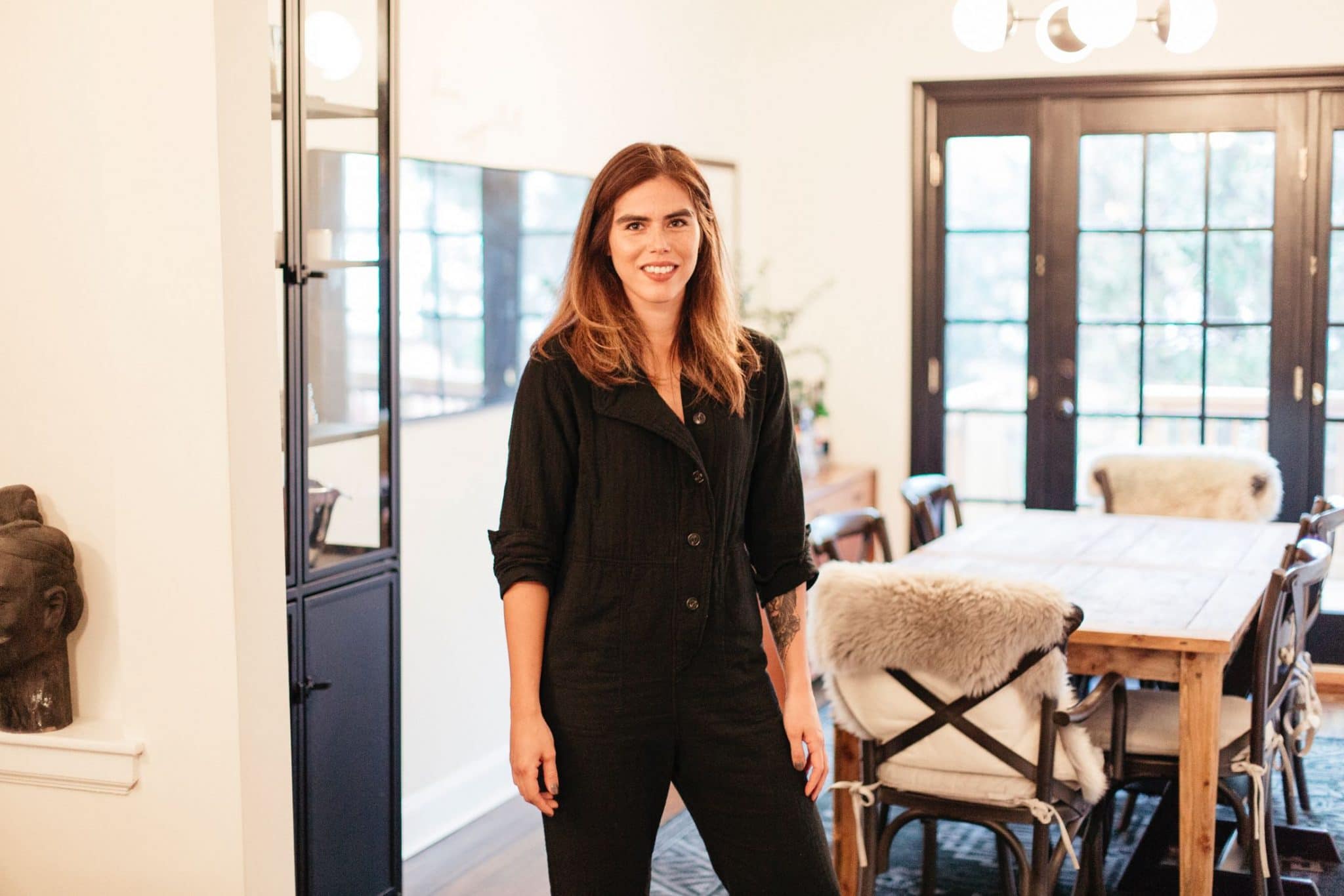
What do you love most about your husband?
Matt is incredibly funny. He can do a ton of characters and voices and is just silly and clever. When we were living together on the Upper East Side, our neighbors probably thought we had seven people living in there, because we would talk to each other in different voices.
What are some things that really work for you two as a team?
The reason why I have a pretty developed answer to this question is that we were the first ones of our friends to get married. We’ve been asked this a lot.
We spend sufficient time apart. During the week, we’ll go meet friends, and that’ll happen once for me, once for Matt. We also take trips apart. Not long trips, but three or four nights away.
I think it’s important to have time where you are alone. You learn a lot about yourself.
We’re constantly checking in. We’re completely transparent about everything. Where we see our marriage going, where we see our careers going, what has changed this year.
We’ve incorporated one another in our interests. Matt was a boxer in college, and he’s since gotten me into boxing. I’m an avid reader. I said, “Listen, Matt, we need to be able to talk about books I’m reading. Just read a book on the train. You have 25 minutes.” It’s good for you as a leader, as a talking point. It makes your character a little bit more robust.
Have your time apart, have certain interests together, and talk about anything that crosses your mind, as ugly as it may be.
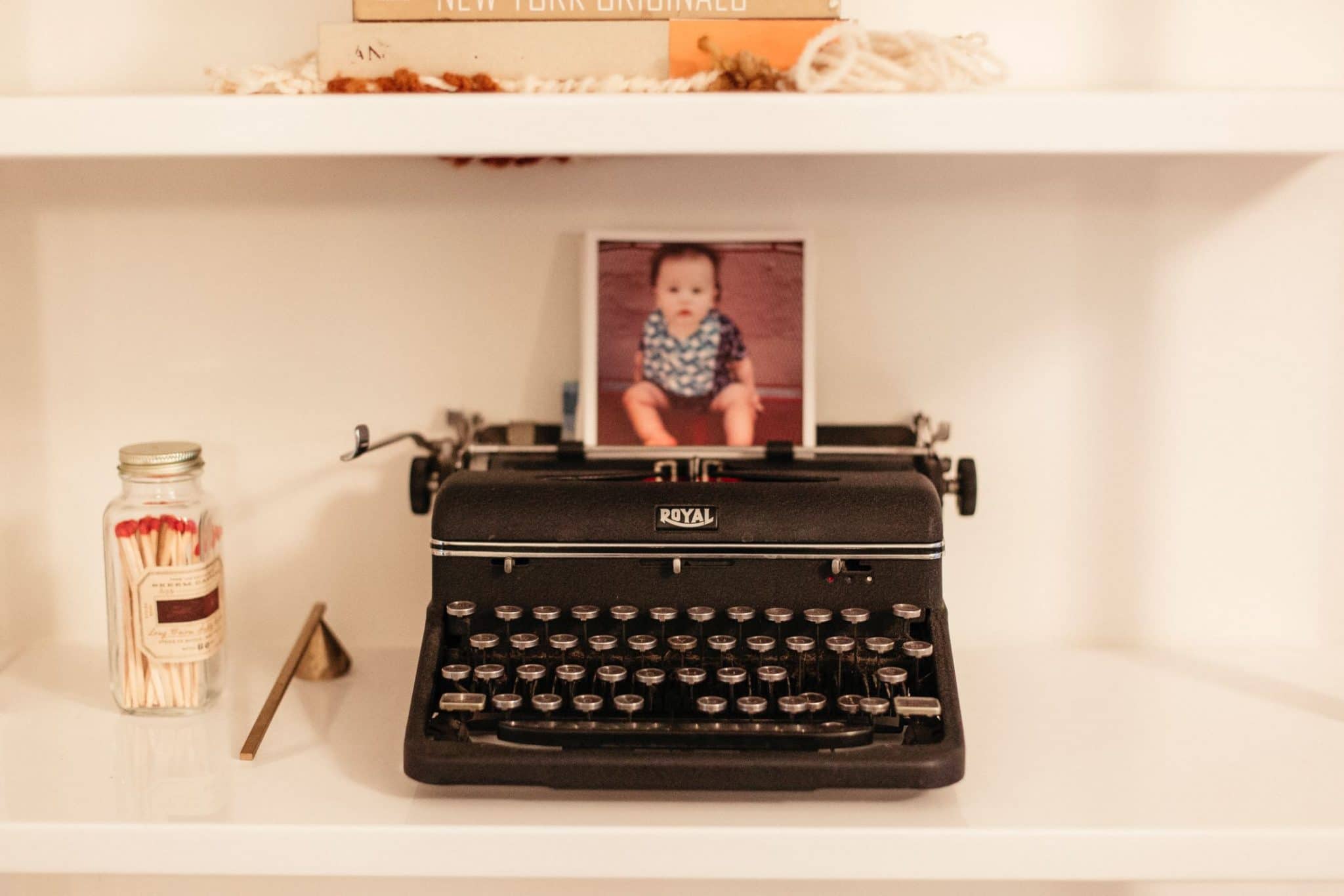
What is your son’s name and the meaning behind it?
Matt’s family uses the first initial of the name to honor someone who has passed. Matt had a really close relationship with both of his grandfathers. When I found out I was having a boy, I told Matt he could pick whatever name he wanted, but the criteria was pretty intense. It had to be something that my family in Chile could pronounce, that didn’t mean anything else in Spanish, that honored his grandfathers, and that honored our son’s Latino heritage.
Matt’s maternal grandfather’s name was Lawrence, so that’s where Leo comes from. His paternal grandfather was Marvin, and that’s where Miguel comes from.
Leo’s Hebrew name has a funny story. Our best friends are David and Thalia. Before they moved out of New York, the four of us would have Shabbat together all the time and spend the holidays together.
I grew up with the custom of having godparents, and it was just something that I wanted to do for Leo.
I said to David and Thalia, “I know this is not something that Jews necessarily do, but, in the event that something were to happen to us, we would love for you to lead Leo’s connection to Judaism, because we trust you with that.” We also asked them to pick his Hebrew name. Before they knew his first name would be Leo, they picked Ari.
What’s something that has surprised you about parenthood?
I think you can go one way or the other. If you are an anxious person to begin with, which I always was as a kid, you can either become more anxious as a mother or you can loosen up. Surprisingly, the latter has happened to me.
When my son was three weeks old, I said, “I’m no longer looking at baby blogs and trying to figure out whether or not my son is on par with his age group. I’m just going to follow his lead.”
How are you approaching raising a kid with multiple religious and ethnic legacies?
We try to do it as naturally as possible. I don’t want to get him to a point where he’s so hung up on fitting within this identity that we’ve created for him that he turns into a caricature of himself.
I speak Spanish at home, we have Spanish and English books, we have Jewish books.
He watches programming in English and Spanish. He goes to a predominantly Spanish-speaking daycare. The elementary school that he’s going to go to is a dual language program, so he’ll learn his classes in both English and Spanish.
My mom would send me to the countryside of Puerto Rico every summer. I would come home speaking a ton of Spanish and having all of this new cultural fun stuff that I was doing, like dancing reggaeton, and identifying as Puerto Rican the way that she did. When Leo’s old enough, I’ll send him to Chile and Puerto Rico, and he can spend some time with my brother, and my brother can send his girls to New York, and they can learn English.
The one that I struggle with the most, honestly, is Leo’s Southern and Northern identities.
My husband is from Savannah, Georgia. I want Leo to be a New Yorker like his mom, 100%. We go to Savannah often, so he’ll definitely have time there. But, man, the South is more foreign to me than Israel would probably be. It’s also been a great learning experience for me in terms of politics, in understanding the United States and how divisive it can be. I think if you grow up in New York City, you don’t understand how the rest of this country thinks until you’re in the South.
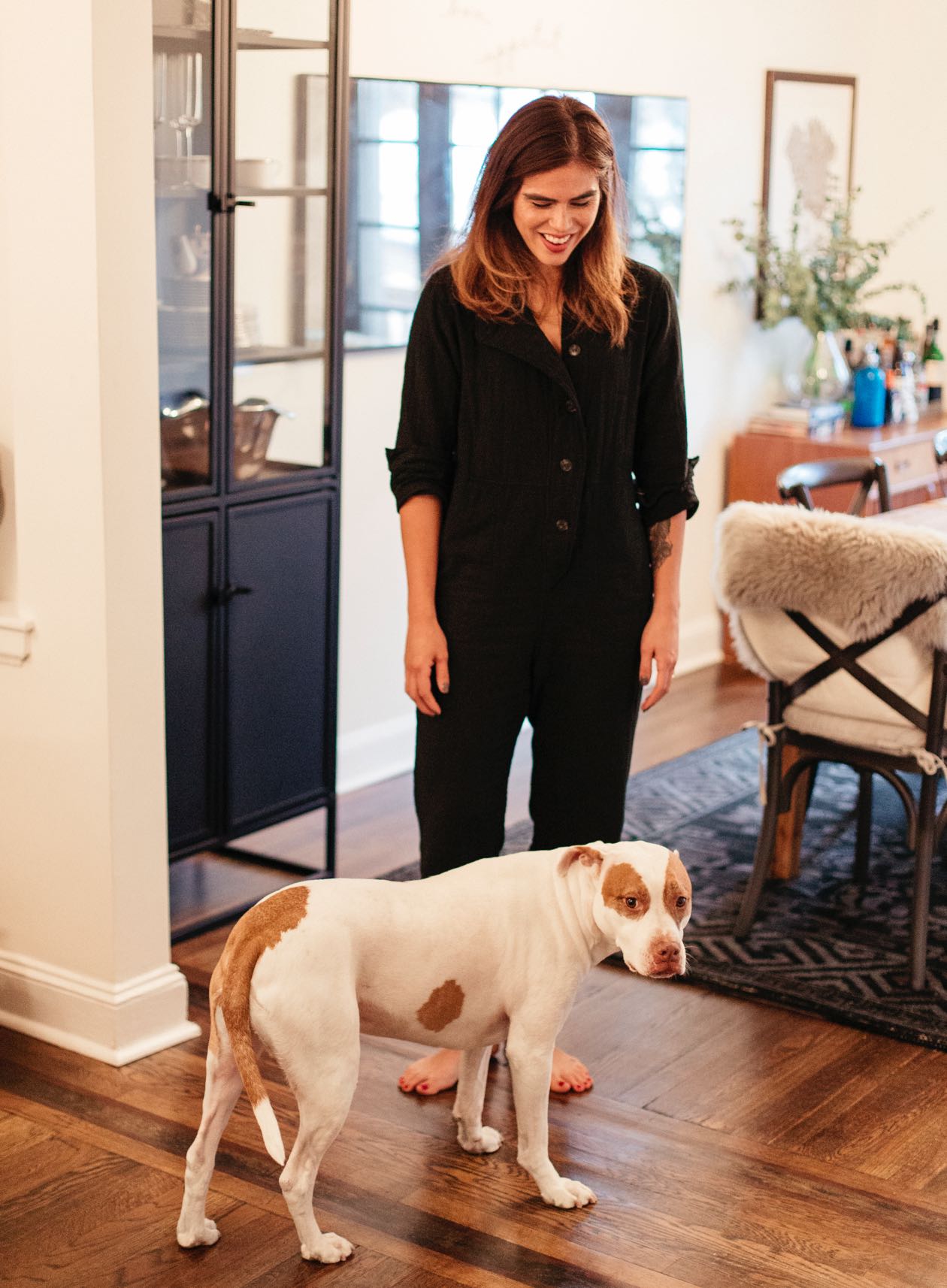
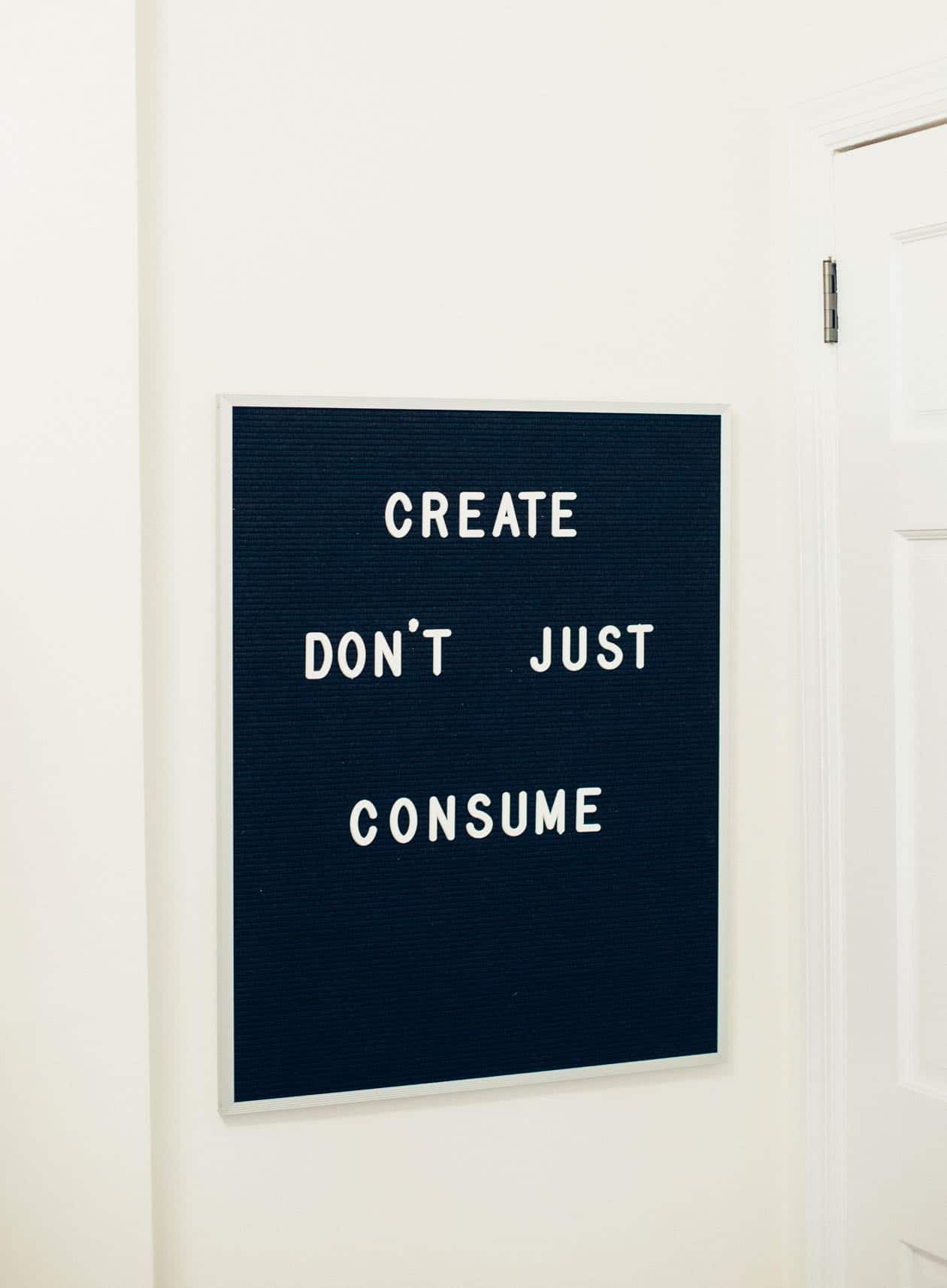
What do you love and what would you leave about New York?
I hate crowds. I just can’t. I’ve done it all my life. But, I’m 5’9″, and I can’t stand not being able to use my full stride when I’m walking. The noise, that’s never bothered me.
The thing that I love the most is the people. The diversity of it all. Queens is one of the most diverse areas in the world. I had Korean friends, I had Ecuadorian friends, white friends, black friends. Hopefully that continues to exist for Leo. New York is segregated, despite its diversity. That is something that I would like to see remedied before Leo goes to high school.
What’s something that’s top of mind for you these days?
I’ve worked in advertising my entire career, and I’m thinking about overconsumption, which is basically my bread and butter and how I make a living. I think we’ve come to a point where we realize the things that we buy and the way we spend our money influences so many other things in this world, from the environment, to politics, to even racial divides.
One of the things that we started incorporating in our home is trying to create more and consume less. Do we really need to buy that? Being mindful of what we’re spending our money on and really trying to figure out where our dollar is going.
I don’t want my kid feeling like he needs to justify his life by what he has.
The income disparity between how I’m raising my son and how I was raised is insane. I think about it pretty much every day. My mom was living with debt, plus paycheck to paycheck. She was a single mom raising my sister and me with very little help. It’s so different than the way Matt and I are raising Leo, with his 529 savings plan. You can’t have everything you want. You’re not going to have everything you want. You need to learn that lesson early.
Who are your favorite writers or books?
I’m a big nonfiction person. I like memoirs, love political history. I’ve always been a George Orwell fan. I love dystopian literature. I also love memoirs by really strong women. I took a writing class with Rosie Schaap, an amazing writer who wrote Drinking With Men. It talks about how she’s a bartender, as well as a writer, and professor. She’s a woman at a bar by herself, ordering a drink, because she likes a good cocktail. It’s such a basic premise, but I love those types of books, which explore what it’s like to be a woman. Then, for any woman in the arts, Virginia Woolf‘s A Room of One’s Own. That is a necessary read.
Favorite Jewish holiday, and why?
I love the High Holy Days. Everything from the first Rosh Hashanah dinner to doing a tashlikh ceremony in Astoria Park and fasting on Yom Kippur, which is harder now, because we have to feed a toddler while we’re fasting. It is so hard to not just eat his lunch, as well.
That entire week, to me, is like a level set. It comes during the time of back-to-school, work is crazy, you’re approaching Thanksgiving soon after. Everyone is in busy, busy mode, because it’s at the end of the summer. It really does provide the opportunity to wipe the slate clean, start fresh, prepare yourself for the secular New Year, and be a little bit more reflective.
Favorite Jewish food? Least favorite Jewish food?
I don’t really like Jewish food at all.
My least favorite Jewish food is kugel, which is polarizing, because people love kugel.
I can’t get down with the egg noodle, and a sweet kugel is worse for me than a savory one. Everyone loves the jello molds. I also do not like matzah treats. Just don’t eat brownies that week. Eat fruit, eat a salad.
I’ve never been to Israel, but I might like their Mediterranean approach to cooking. David, our son’s godfather, makes a really great Israeli salad with the cucumbers, the tomatoes. He puts a little za’atar on it, and it’s so good. The festive challah at Breads Bakery, that is insanely good. I would eat that every day.
Photos by Elena Mudd
Thank you for visiting Arq!
Arq is no longer publishing new content. We hope you'll enjoy our archived posts.